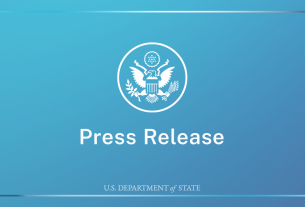(Kyiv) – A new law adopted by Ukraine’s parliament, the Verkhovna Rada, on July 22, 2025, effectively strips Ukraine’s key anti-corruption bodies of independence and is detrimental to the rule of law, Human Rights Watch said today.
Parliament should repeal these amendments, engage in meaningful consultation with Ukrainian civil society, and ensure that Ukraine’s crucial anti-corruption bodies can continue their work independently and without interference. The legislative changes may also impact Ukraine’s European Union accession efforts, for which rule of law reforms are a central requirement.
“Undermining independent anti-corruption bodies, especially during the brutal war that Russia is waging against Ukraine, risks weakening Ukraine’s democratic foundations and its future integration with Europe,” said Rachel Denber, deputy Europe and Central Asia director at Human Rights Watch. “Parliament should immediately repeal these amendments to protect the rule of law and human rights, which are crucial for Ukraine’s recovery and its path to justice.”
Bill number 12414 was initially introduced by a group of parliament members from the governing Servant of the People party to address cases of disappeared persons in front line areas. It was adopted at the first reading in January. However, on July 22, critical amendments concerning Ukraine’s anti-corruption bodies were unexpectedly introduced in the bill.
The Verkhovna Rada’s law enforcement committee recommended voting on the bill on the same day, with the bill passing by a vote of 263 in favor. Despite multiple calls from civil society and some politicians to veto the bill, President Volodymyr Zelensky signed it into law on the same day.
The new legislative amendments severely limit the powers of the National Anti-Corruption Bureau (NABU) and the Specialized Anti-Corruption Prosecutor’s Office (SAPO) – key bodies established to investigate high-level corruption – by significantly expanding the authority of the prosecutor general over their investigations.
The amendments allow the prosecutor general to reassign NABU cases to other bodies if they deem their pretrial investigation ineffective or if “objective circumstances” make NABU’s functioning impossible under martial law. Previously, Ukraine’s Criminal Procedure Code prohibited the transfer of cases under NABU’s jurisdiction to other law enforcement agencies. This new provision creates a significant loophole for removing politically sensitive cases from NABU’s purview entirely, Ukrainian groups told Human Rights Watch. The new law also empowers the prosecutor general to request pretrial investigation materials from any SAPO prosecutor and transfer them to a prosecutor outside of SAPO as well as strips the authority from the agency’s leader to charge high-ranking officials with corruption, making the prosecutor general the sole body with this authority.
Finally, the prosecutor general can now issue direct instructions to anti-corruption prosecutors within the Specialized Anti-Corruption Agency, overriding the previous system in which these prosecutors were subordinate only to the agency’s leadership.
The swift, last-minute manner in which the amendments, were introduced and adopted – entirely altering the bill’s original purpose – attracted widespread criticism from Ukrainian civil society. One activist described it to HRW as a “knife in the back.” Others criticized the new legislation’s overall impact on anti-corruption efforts.
Volodymyr Yavorsky, a human rights lawyer and the program director of Ukraine’s Center for Civil Liberties, said that the new law “destroys the reform of the prosecutor’s office and prosecutorial independence, in particular, of NABU and SAPO.”
“Now, any investigation against high-ranking officials is possible only with the written permission of the prosecutor general, who is a figure completely politically dependent on the president,” he said. “Furthermore, the grounds for conducting searches without a court order have been significantly expanded. All of this contradicts the European Court of Human Rights practice and EU standards.”
Preventing and combatting corruption has been a preeminent priority on the EU-Ukrainian reform agenda since the EuroMaidan protests. As an EU candidate country, Ukraine is obliged to align to EU rule of law standards and meet a host of obligations related to strengthening the independence and effectiveness of its anti-corruption institutions. The fight against corruption was one of the fundamental principles laid out in the EU-Ukraine Association Agreement, signed in 2014.
On July 22 and 23, thousands of people across Ukraine, many of them teenagers and young adults, protested against what they view as an attack on anti-corruption efforts and what they perceive as backsliding of Ukraine’s democratic process. These were the first widespread antigovernment protests in Ukraine since Russia’s full-scale invasion began, with people taking to the streets in Kyiv, Odesa, Lviv, and several other cities.
The creation of the Anti-Corruption Bureau and the establishment of truly independent anti-corruption institutions was a core requirement by the European Union for Ukraine to advance in its EU integration. The specialized prosecutorial unit is tasked with overseeing the Anti-Corruption Bureau’s adherence to legislation during investigations, and its prosecutors represent cases investigated by NABU in court. The heads of both bodies are selected independently through open competition.
The adoption of the law was proceeded in July by dozens of searches of NABU employees, by officers from the Prosecutor General’s Office as well as the Security Service of Ukraine and the State Bureau of Investigation, reportedly carried out without court orders and with multiple due process violations. The authorities initiated investigations against several NABU employees on suspicion of various crimes and offenses, reportedly ranging from ”cooperation with the aggressor state” and treason to committing traffic accidents in 2021 and 2023.
In mid-July, the authorities initiated a criminal case against Vitaliy Shabunin, a prominent anti-corruption activist who has played a key role in exposing alleged government corruption in the areas of weapon procurement and supply. The executive director of the Anti-Corruption Action Center, (AntAC), cofounded by Shabunin, linked the authorities’ move against Shabunin to their “testing of red lines.”
“The Presidential Office clearly dislikes our exposes of corruption and harmful government initiatives,” said Daria Kaleniuk, the AntAC’s executive director. “We see this as an attempt to distract us from our work.”
Several politicians, well-established political bloggers and journalists have expressed profound concerns over the developments, reflecting an apparent broader sentiment among civil society and the military.
A prominent Ukrainian activist and blogger has called the new legislation “an act of internal subversive activity in times of war” and said that it “significantly demoralizes people and creates grounds for internal discord and confrontation,” also stating that the new legislation “undermines trust in state institutions.”
Ukraine’s international partners also voiced concerns over Ukraine’s new legislation. EU Enlargement Commissioner Marta Kos called the July 22 parliamentary vote a “serious step back,” underscoring that such independent bodies are “essential for Ukraine’s EU path,” and emphasizing that “rule of law remains in the very center of EU accession negotiations.”
A spokesperson for the European Commission said that, “The EU provides significant financial assistance to Ukraine, which depends on progress in transparency, judicial reform, and democratic governance.”
The head of the Anti-Corruption Division at the Organization for Economic Co-operation and Development’s (OECD) Directorate for Financial and Enterprise Affairs, in a letter to President Zelensky’s office stated that that the new legislation significantly undermines the independence of Ukraine’s specialized anti-corruption bodies, threatens Ukraine’s joining OECD and “damages its credibility among international partners, particularly those considering investment in Ukraine’s defense sector and long-term reconstruction”.
“Stripping anti-corruption bodies of their independence threatens the rule of law in Ukraine,” Denber said. “The authorities should repeal these amendments and uphold the standards that protect human rights.”


